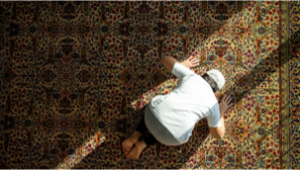Workshops for Organisations
Our goal is to continue to build and develop relationships with the public sector in Cambridgeshire and beyond to raise awareness of the role of Islam and Muslims in wider society as well as promoting better understanding of Islam. The Centre aims to engage with different faith groups, mosques, churches, health service, social workers, Muslim and non-Muslim communities, police, prison, lawyers and Muslim organisations to offer knowledge and expertise and organise seminars and talks on issues facing Muslims in contemporary Britain.
If you are interested in booking a free workshop, please either fill in the booking form or send us an email at yh477@cam.ac.uk
 Cultural Diversity Training on Islam: Understanding Muslims
Cultural Diversity Training on Islam: Understanding Muslims
Duration: 1 – 2 hours
This workshop begins with a conversation about common stereotypes and other barriers faced by Muslims. This is followed by an overview of Muslim traditions and practices, pertinent contemporary issues, and their implications for Muslims in contemporary Britain.
 Culturally Appropriate Care for Muslim Patients
Culturally Appropriate Care for Muslim Patients
Duration: 1 – 2 hours
This workshop is ideal for individuals who work in the health care field. A short overview will introduce some terminology, demographics and the basic beliefs and practices in Islam. The main part of this workshop focuses on health care related issues with Muslim patients and also examines cultural and religious issues around illness, treatments, dietary restrictions, birth, end of life, death etc. Case studies help in understanding the practical side in dealing with Muslim patients and on how to improve outcomes and communication between patients and providers.
 Understanding and Countering Islamophobia
Understanding and Countering Islamophobia
Duration: 1 – 2 hours
This workshop introduces the topic of Islamophobia. Beginning with the evolving definition of the term, this workshop examines the historical roots which gave rise to Islamophobia and contemporary factors which enable it, as well its various manifestations in society, its impact on Muslims and all British, and strategies to counter it through education and engagement.

